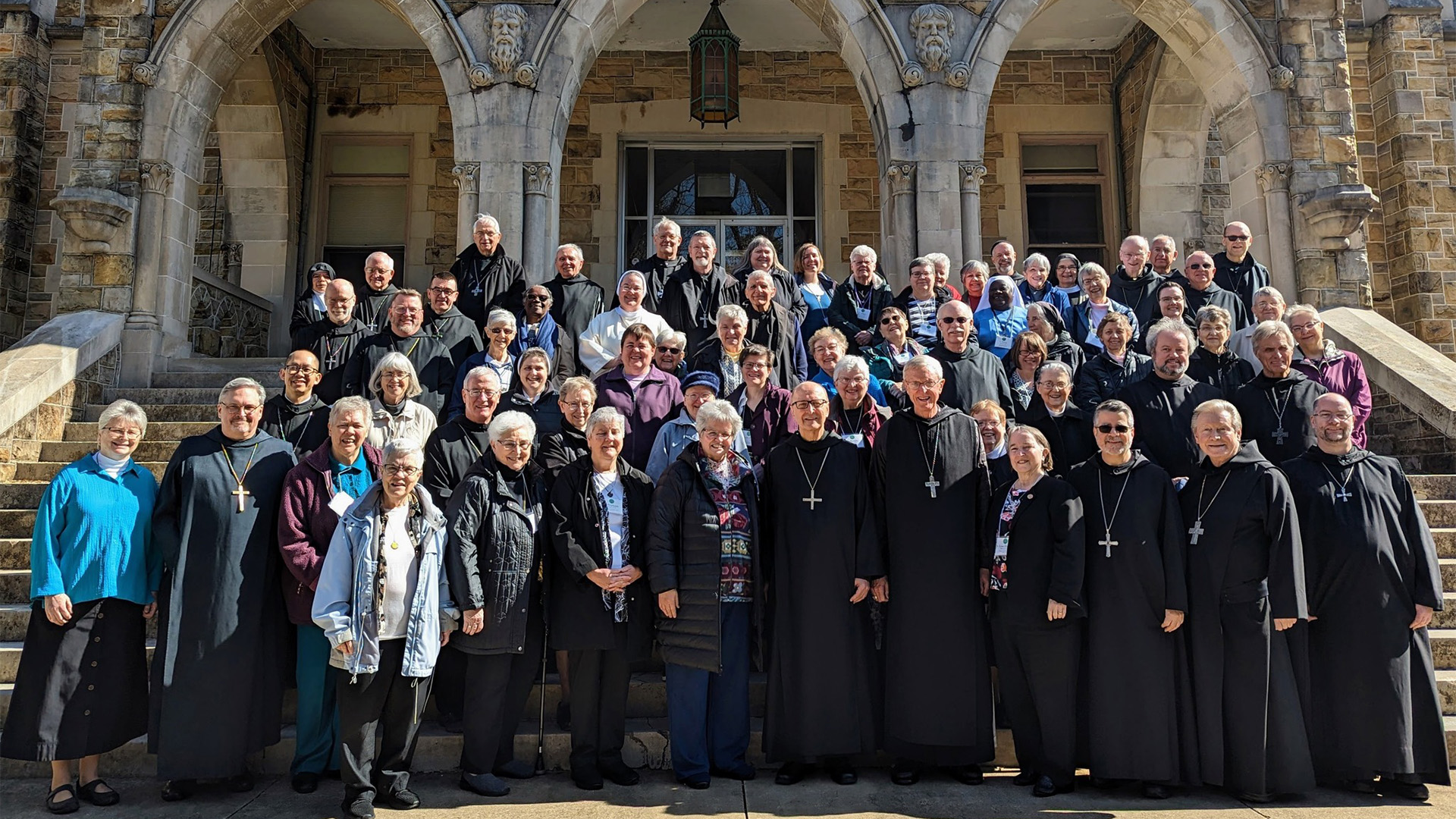Photo : Courtesy of Saint Bernard Abbey
Cullman, Alabama: A joint meeting of Benedictine Abbots and Prioresses was held at the Byre Conference Center of Saint Bernard Abbey in Cullman, Alabama, USA, on the weekend of 3 February 2023. The Prioresses were hosted by the Benedictine Sisters of Sacred Heart Monastery, while the Abbots were welcomed by the monks of Saint Bernard Abbey. Twenty-seven Abbots and 44 Prioresses from Central America, the United States and Canada gathered to attend conferences on health-care issues and how best to serve the needs of the sick and the elderly.
Saint Benedict, the founder of the Benedictine tradition, included specific sections of the Benedictine Rule of Life on the care of the sick. Concern for implementing his admonitions in Benedictine life today, especially in care of the sick and elderly, was the focus of the presentations.
Rt. Rev. Gregory Polan, OSB, the Abbot Primate and representative of Benedictines worldwide, opened the first conference and gave a report on Benedictine communities around the world. He said, “We need to keep in mind that we are international. We are multicultural and many things are beginning to pick up after the heavy impact of the pandemic.” He spoke at length about Benedictine life around the world and concluded by giving a report about Sant’Anselmo, the international Benedictine residential college and athenaeum located in Rome, Italy.
On Saturday, 4 February, Br. John Mark Falkenhain, OSB, a licensed psychologist and a member of the faculty at Saint Meinrad Seminary, Indiana, USA, discussed mental health concerns in society today. He delineated the four main areas of psychological functioning, including affect, behavior, cognition and social functioning. He then described the specific problems and disorders present within each of these areas, particularly in an aging population.
Sr. Esther Fangman, OSB, Prioress of Mount Saint Scholastica Monastery in Atchison, Kansas, USA, and her staff spoke on Sunday, 5 February, about the care of those who suffer from chronic illness and ways in which to provide for them with long-term care. Special attention was given to Alzheimer’s disease, depression and heart disease.
“It was good to have the Abbots and Prioresses join us at Saint Bernard,” said Abbot Marcus Voss. “Most of our monasteries have infirmaries, as prescribed by Saint Benedict, and provide for the infirm members of our communities. It was extremely helpful to have the opportunity to discuss how best to care for them.” In addition, Abbot Marcus said, “It was an honor to have the leaders of other Benedictine monasteries at Saint Bernard. It makes us aware of the richness of our Benedictine tradition and the worldwide community we share.”


